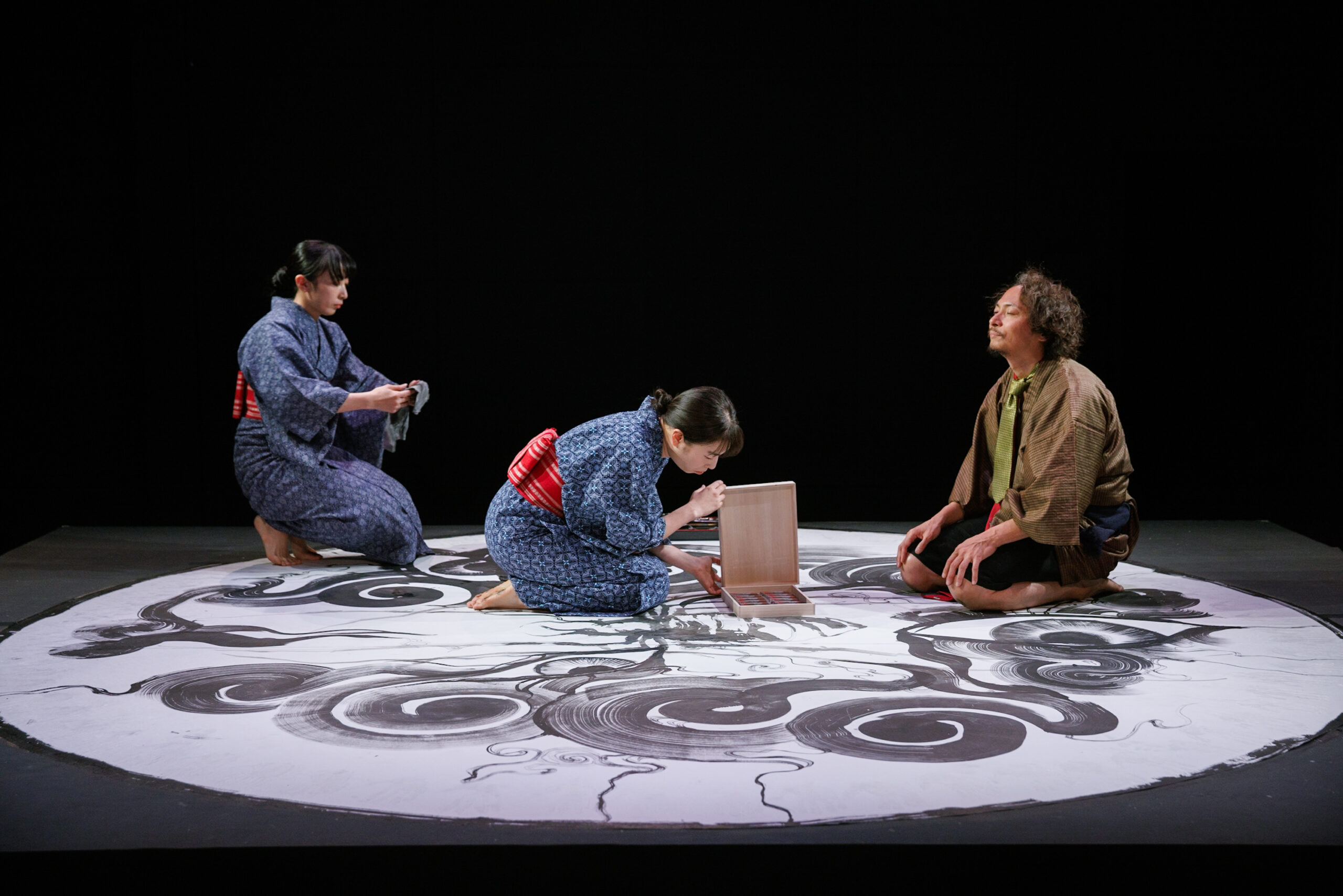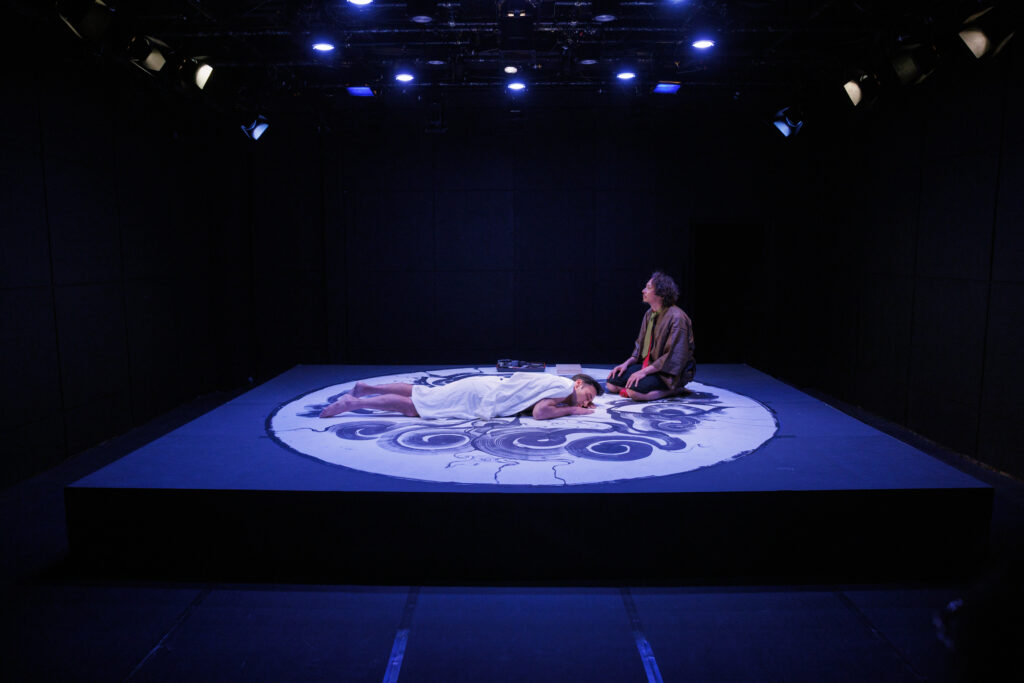
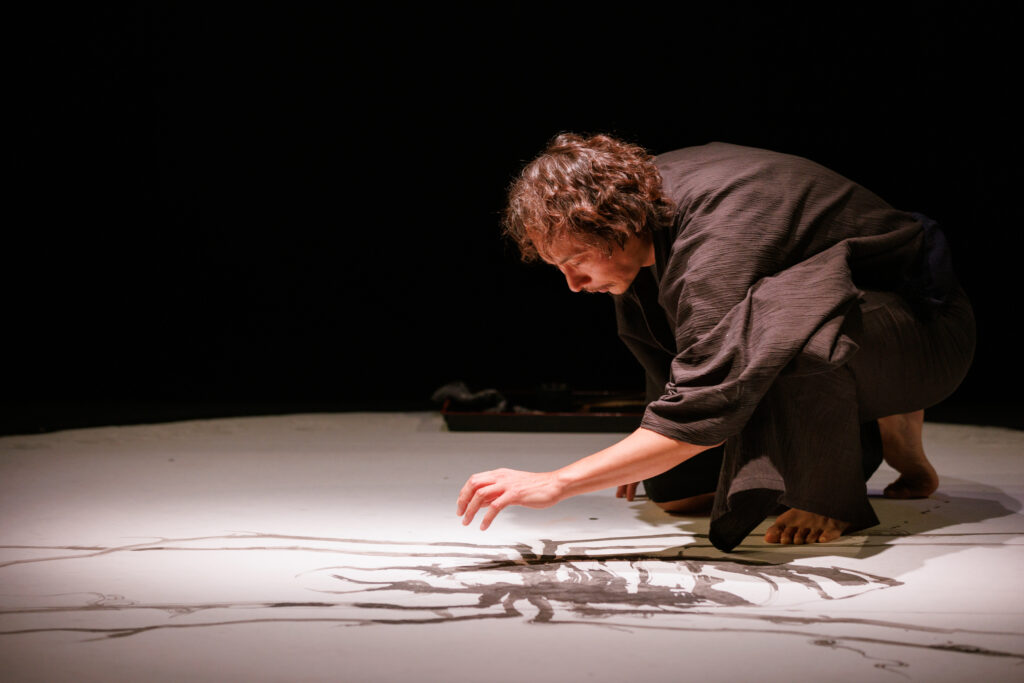
Takuya Kato’s “One Small Step” was the first Japan-UK collaboration staged this year at the Charing Cross Theatre just round the corner from Trafalgar Square in central London. Now following in its wake is “Tattooer” by 2023 Kishida Kunio Drama Award finalist Takuya Kaneshima, which is being directed by Hogara Kawai, the founder of the Ressenchka experimental theatre company.
In fact “Tattooer” is an adaptation by Kaneshima of “Shisei”, a 1910 novel of the same name by Junichiro Tanizaki, whose aesthetic writing and erotic and grotesque stories have made him among the best-known and most popular Japanese authors in the West.
In this Japan-UK collaboration, the cast comprises the bilingual actors Leo Ashizawa, Aki Nakagawa, Nozomi de Lencquesaing and Mao Aono, who previously performed this play in Japanese in Tokyo before switching to English for the London shows — which also feature a live Sumi-e (ink-brush painting) performance by the artist Gaku Azuma during the interval.
After its world premiere at the Atelier Shunpusha in Tokyo in late September, Jstages.com interviewed the director, Hogara Kawai, about the play and the aim of performing in London.
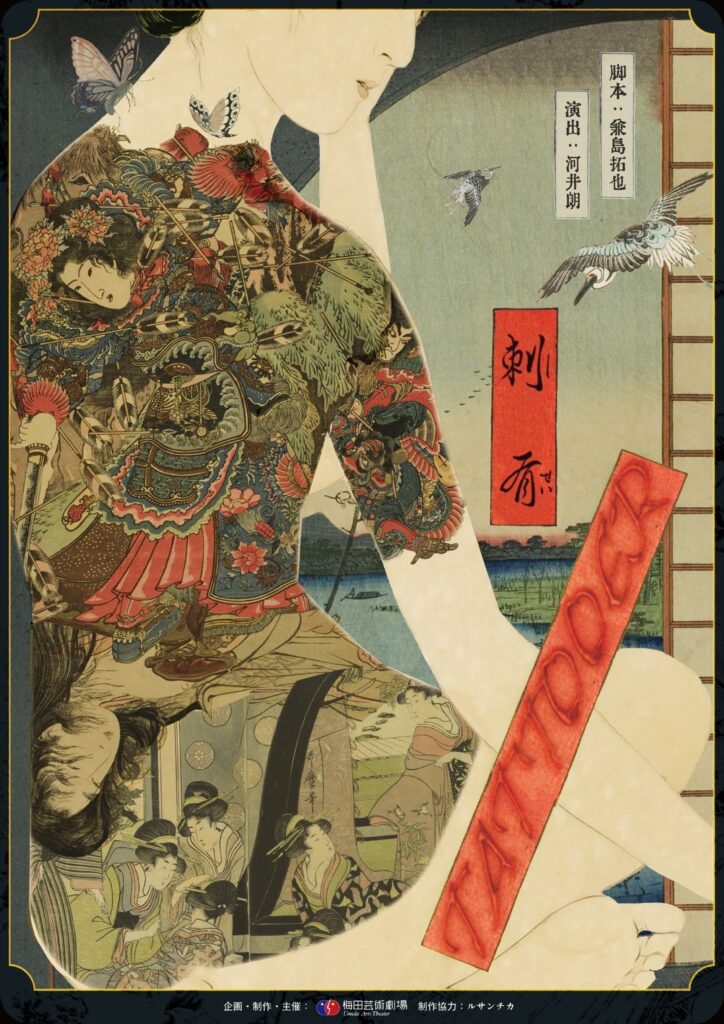
Q: Please tell me how this project started and has progressed?
In May 2023, the producer of the Umeda Arts Theater, Ms Murata, saw my direction of Juro Miyoshi’s one-woman play ‘Satsui — Strip Show’, and after the performance she came to see me.
Then as we were chatting she said, “It sounds very sudden, but are you interested in presenting a show in London? Do you want to do a play there based on Junichiro Tanizaki’s ‘Shisei’”?
To me that was very abrupt, but she told me she had already seen several of my works and that’s why she decided to make the offer. So I was surprised and very pleased, and when Umeda Arts Theatre told me I was free to do it however I wanted I was really grateful for their generosity.
Of course some meetings followed and we decided to ask Kaneshima to write the script, and to make the play with a bilingual cast of the same actors performing in each language.
As I don’t understand English, we decided to make the play in Japanese and present it in Tokyo first before taking it to London. So we started by auditioning bilingual actors in Japan.
The script is written in Japanese, and that text was translated by the bilingual actors and checked by Kaneshima. We also closely examined together many different expressions in both languages. Altogether, it was a very rare and valuable experience for me.
Q: What sort of discussions did you and Kaneshima have?
It was my first collaboration with Kaneshima and to start with we discussed the meaning of dramatizing Tanizaki’s novel for audiences in today’s Tokyo and London. And as the impression of Tanizaki’s works is different between Japan and Western countries, we also talked about such things.
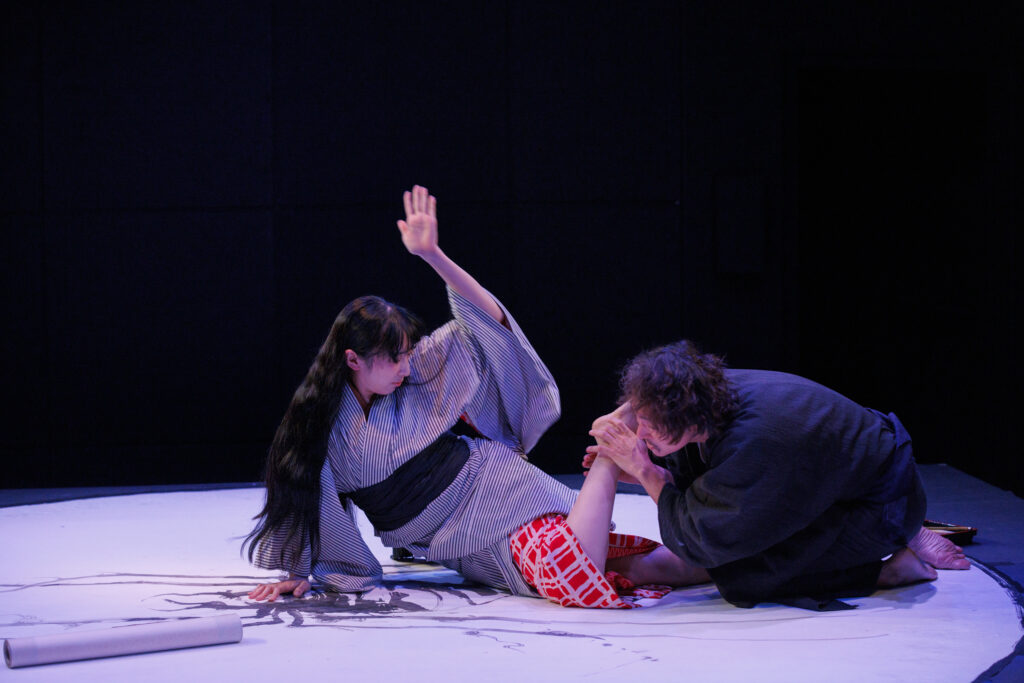
For instance, It’s quite common to present Tanizaki’s works to draw attention to their eroticism, masochism and femme fatale characters, but we decided not to do it like that this time.
So, we started to talk about how to express Tanizaki’s immoral voyeurism through the medium of theatre. We thought it could be dangerous if we got it wrong with many people gathered together to see it. So we decided to look for that kind of content in the author’s life, not the story’s sensuality.
Consequently, Kaneshima put actual episodes into his play, such as Tanizaki’s fetishism about female feet, one in which he lets his best friend get married to his wife, and another when he treats women taking dictation from him as low-level servants.
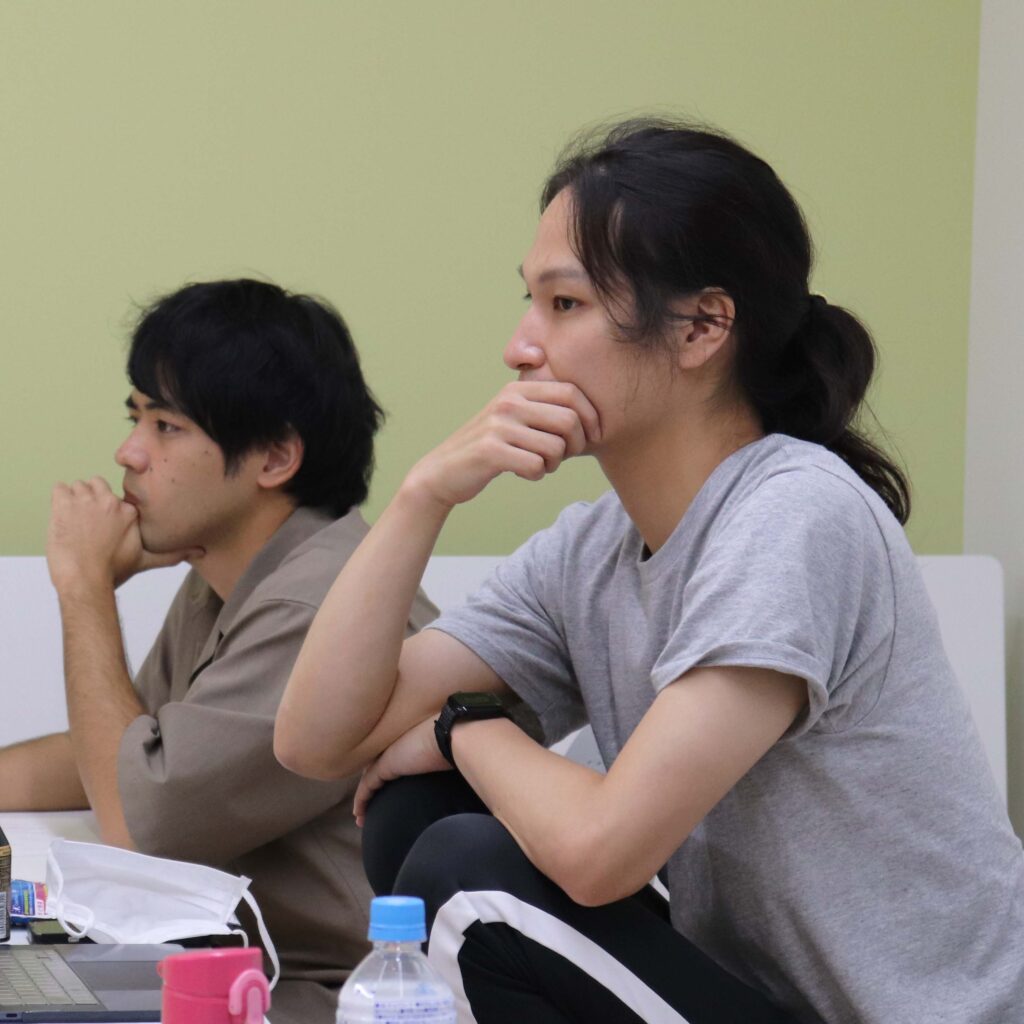
L->R Takuya Kaneshima (writer) and Hogara Kawai (director)
Q: You always declared that you want to make a “contemporary” stage. How did you do that in this production?
I tried to make this work from an objective standpoint regarding Tanizaki. I didn’t make it too dramatic, and intentionally directed it so audiences feel like they are watching the tattooer at work on the stage by carefully organising the distance between them and the actors
and the tattoo picture.
I hope audiences will imagine the 100-year-old original novel’s world there and also Tanizaki’s distinctive artist’s life even though he died 60 years ago.
Q: What do you expect about the London tour?
I will be 31 this year. When I was in my early 20s and went to see some theatre in Germany I dreamt of presenting my work in other countries. However, over the years I lost that passion because it costs so much to even keep staging works in Tokyo that I’d gradually forgotten about overseas tours.
Then Umeda Arts Theatre suddenly asked me to do this and now that I’ve been offered this chance I want to continue staging my works in other countries. I also want to present famous foreign plays, such as when I did Samuel Beckett’s ‘Endgame’, to show how a young Japanese director deals with them.
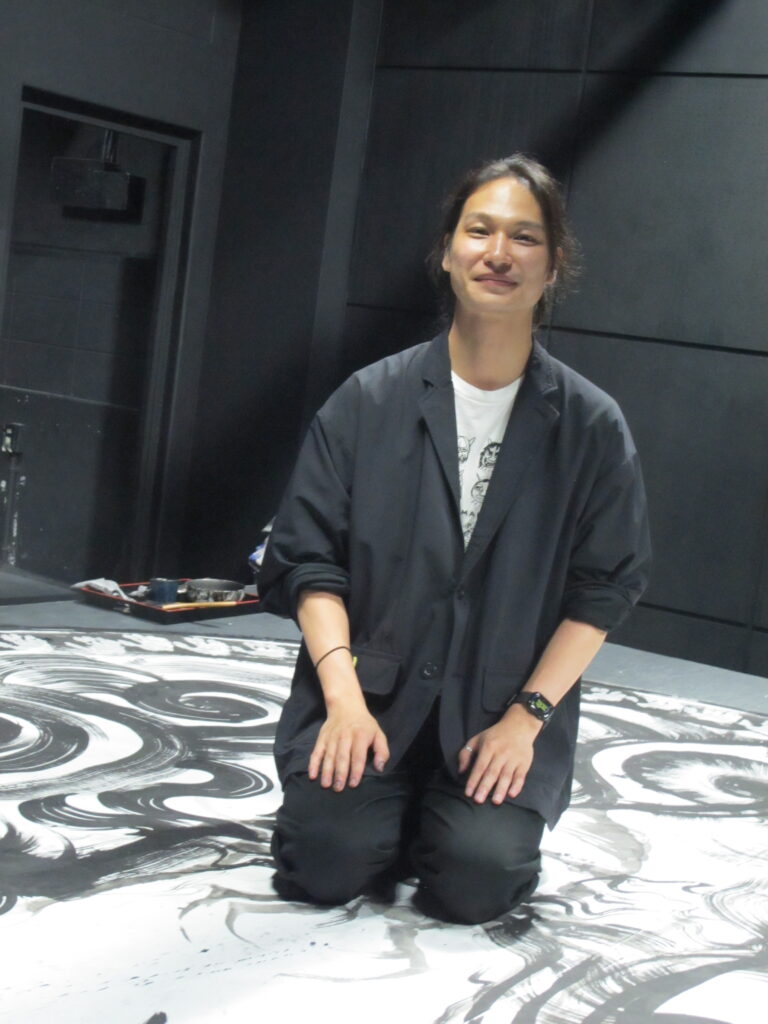
Hogara Kawai (director)
Q: What will it take to keep advancing Japanese contemporary theatre?
A: Theatre is an art form that costs money, and as it’s still a minor media the running time of any one show is very limited. Consequently, theatre needs more financial support from the government. Also, we need to adopt new ideas to cut the cost — for example, by leaving theatre buildings and finding other places to present performances, or by using non-professional actors. I have already tried some of these in my productions.
I think it would be good if theatre people collaborated more with other genres of artists, such as visual artists or musicians, to create cross-cultural works. For example, even though I have used existing texts before, ‘Tattooer’ is my first work with the writer of a piece, so it’s the first time I’ve worked with a writer in a rehearsal room and I think that the more we do all sorts of
collaboration work the wider range of possibilities we will have in the future.
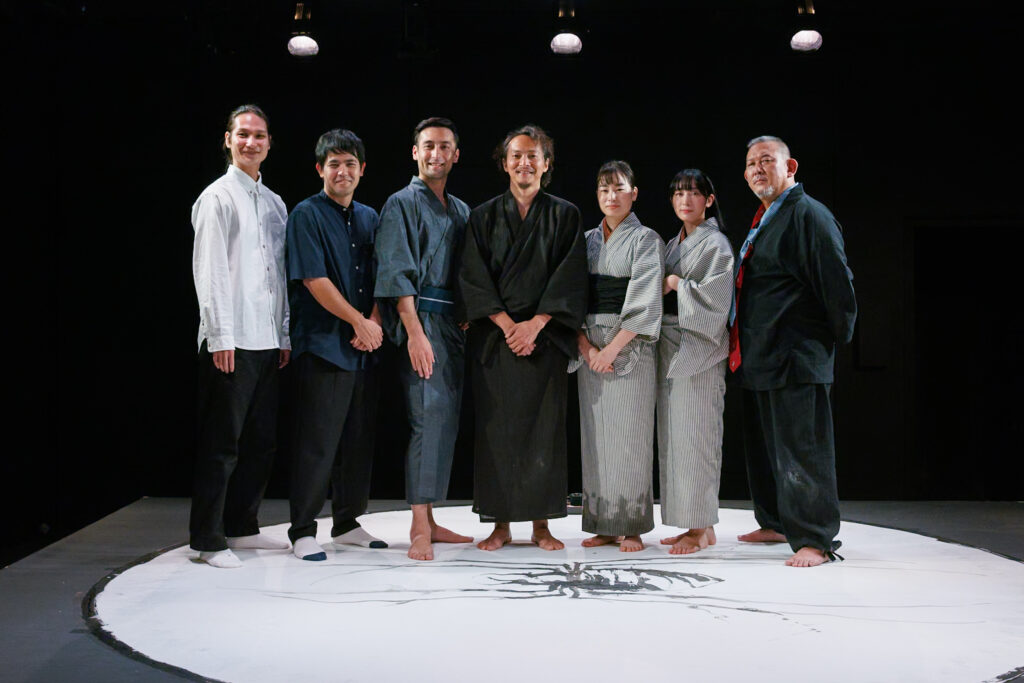
“Tattooer” casts and director, writer and Sumi-e artist
“Tattooer” runs till Oct. 26 at the Charing Cross Theatre in London.
For mor details at https://charingcrosstheatre.co.uk/theatre/tattooer

